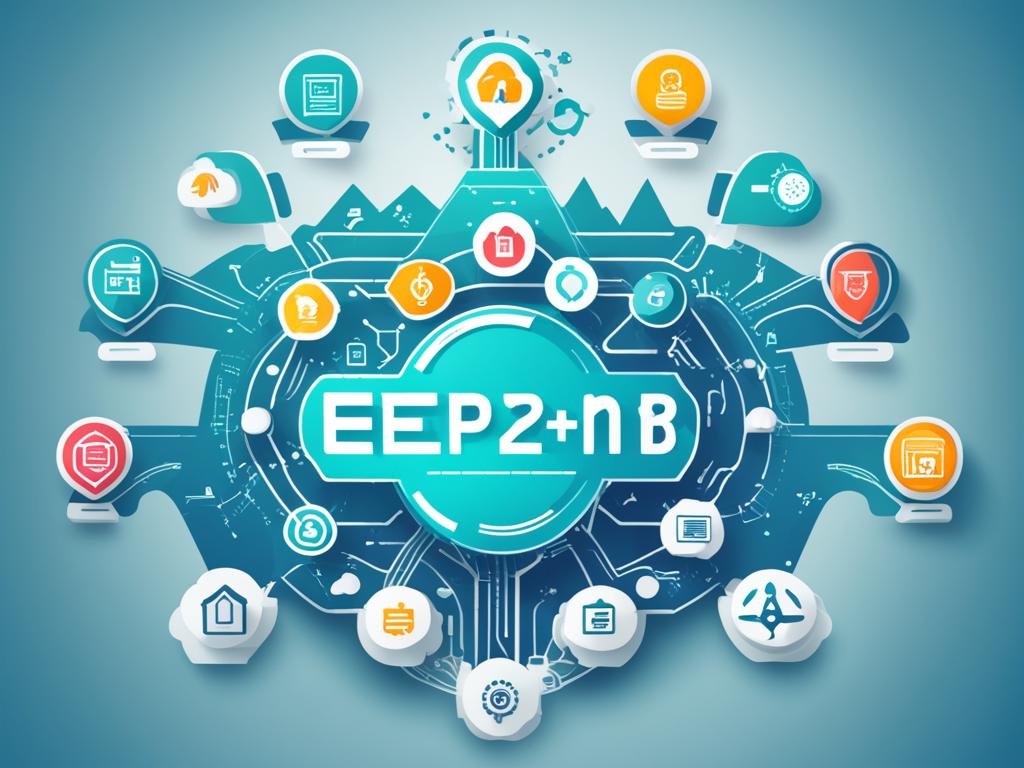Did you know that open-source ERP software is revolutionizing the way businesses manage their operations?
According to recent research, the market for open-source ERP software is expected to reach a staggering $3.22 billion by 2026, growing at a CAGR of 9.8%. This highlights the increasing adoption and demand for customizable ERP solutions that offer cost-effectiveness and flexibility.
So, if you’re looking for a powerful, customizable ERP system that doesn’t break the bank, you’ve come to the right place. In this article, I will introduce you to the top 7 open source ERP systems that you should consider for your business in 2024.
Key Takeaways:
- Open-source ERP software is gaining popularity due to its cost-effectiveness and flexibility.
- The market for open-source ERP software is projected to reach $3.22 billion by 2026.
- In this article, you will discover the top 7 open source ERP systems to consider in 2024.
Benefits of Open Source ERP Software
Open-source ERP software provides a wide range of benefits for businesses, making it a cost-effective and versatile solution for managing operations. With its flexibility, scalability, and strong community support, open-source ERP systems offer significant advantages over proprietary alternatives.
Cost-Effective Solution
One of the most appealing aspects of open-source ERP is its cost-effective nature. As the software is freely available, businesses can save significantly on licensing fees and initial setup costs. This makes open-source ERP an attractive option for organizations with limited budgets, allowing them to allocate resources to other critical areas. Moreover, ongoing maintenance and support costs are typically lower compared to proprietary ERP systems.
Flexibility to Tailor to Business Needs
Open-source ERP software provides businesses with the flexibility to customize and adapt the system according to their unique requirements. This level of customization allows organizations to create tailored workflows, implement specific features, and design user interfaces that align with their processes. By having full control over the software, businesses can optimize their efficiency and productivity, delivering better outcomes for their daily operations.
Scalability for Growth and Expansion
Open-source ERP systems offer scalability, enabling businesses to seamlessly grow and expand without facing limitations. As companies evolve, their requirements may change, and open-source ERP software can easily accommodate these changes. Whether it’s adding new functionalities, integrating with other tools, or supporting increasing data volumes, open-source ERP systems provide the scalability needed to support business growth over time.
“Open-source ERP software provides businesses with the flexibility to customize and adapt the system according to their unique requirements.”
Community Support and Collaboration
The open-source nature of ERP systems fosters a vibrant and supportive community of users, developers, and experts. This community-driven approach means businesses can benefit from the collective knowledge and experiences of others. Users can access a wide range of resources, including forums, documentation, and online communities, to troubleshoot issues, share best practices, and exchange ideas. This active collaboration ensures continuous improvement and innovation within the open-source ERP ecosystem.
By leveraging the advantages of open-source ERP software, businesses can enjoy a cost-effective solution that combines flexibility, scalability, and strong community support. With the ability to tailor the software to their specific needs, organizations can optimize their operations and stay competitive in today’s dynamic business landscape.
Conclusion
Open-source ERP software provides businesses with a cost-effective and flexible solution for managing their operations. With the ability to customize the software according to specific needs and requirements, open-source ERP systems have gained significant popularity in recent years. By leveraging the power of open-source ERP software, companies can enhance their efficiency, reduce costs, and stay competitive in today’s fast-paced business environment.
Business efficiency is crucial for driving growth and success. Open-source ERP software empowers businesses to streamline processes, automate tasks, and optimize resource allocation. Whether it’s inventory management, sales and customer relationship management, or production planning, open-source ERP solutions offer customizable features that meet unique business needs. By implementing agile and adaptable ERP systems, businesses can enhance their day-to-day operations, improve productivity, and achieve higher levels of efficiency.
Furthermore, the accessibility of open-source ERP software is a significant advantage. With the support of a vibrant community of developers and experts, businesses can rely on a strong network for assistance, updates, and ongoing development. This community-driven approach ensures that open-source ERP solutions remain up-to-date with evolving business requirements and technological advancements.
In conclusion, open-source ERP software presents an attractive option for businesses looking for customizable solutions that boost efficiency and decrease costs. The top 7 open-source ERP systems showcased in this article exemplify the capabilities and benefits of these solutions. By carefully selecting the most suitable open-source ERP system, businesses can optimize their operations, drive growth, and stay ahead of the competition in 2024 and beyond.


1 thought on “Top 7 open source ERP systems to consider in 2024”
Comments are closed.